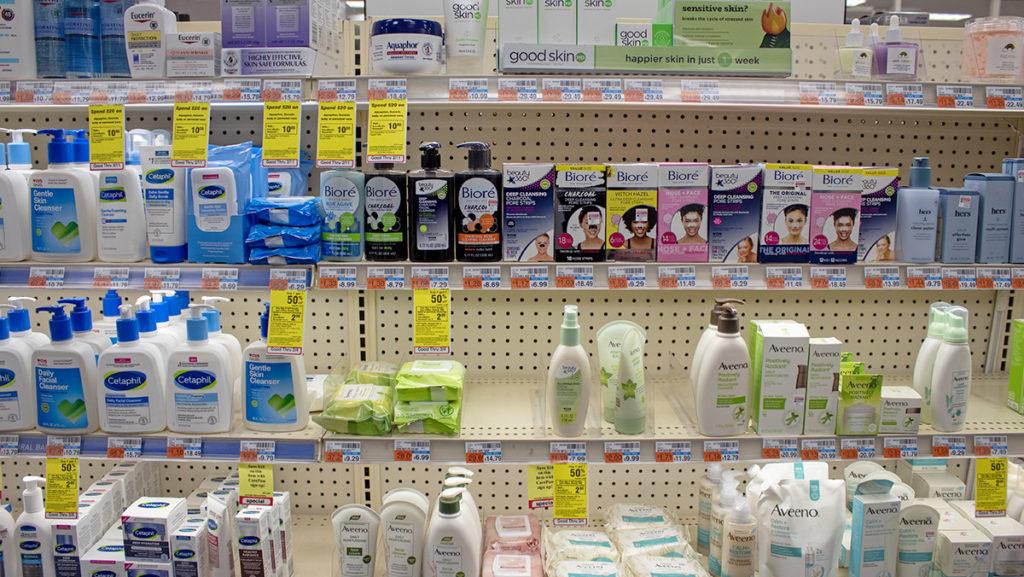As of Dec. 15, Governor Kathy Hochul made New York the 10th state to ban the sale of cosmetics that test products on animals by signing the New York Cruelty-Free Cosmetics Act into law, with a few exceptions.
According to the New York City Bar website, these exceptions regard animal testing within the capacity of a commonly used ingredient that could not be replaced in cosmetic products. An exception would also be made if the product needs to be tested to determine if it causes a health issue. A final exception on the website said that testing would be required if no alternative to animal testing is accepted by the state or federal agency.
The website also states that further exceptions include cosmetics tested on animals required by a foreign jurisdiction or cosmetics tested on animals before Jan. 1. Any manufacturer that violates the law can face at least $5,000 unless exceptions apply.
Talitha McMillion, assistant correspondent with People for the Ethical Treatment of Animals (PETA), said via email that the loopholes in the New York State legislation are ethically unacceptable and not necessary, yet are still happening with similar loopholes in places like China and the European Union.
McMillion also said via email that PETA has educated some officials and scientists in China, making animal testing requirements more flexible.
“China requires tests on animals for many imported cosmetics products,” McMillion said via email. “Most of the companies exporting to China do not themselves test on animals and they don’t rely on the data that is gathered in China; they’re simply allowing this testing in order to sell their products.”
McMillion said that in the EU, some cosmetic ingredients are still being tested on animals despite the ban. However, she said PETA’s UK affiliate is trying to challenge the use of animal testing.
“The new NYS law does not prohibit this testing, as long as the companies don’t use the testing data,” McMillion said via email.
New York joins California, Nevada, Illinois, Hawaii, Maryland, Maine, New Jersey, Virginia and Louisiana in prohibiting the sale of cosmetics tested on animals. Cruelty Free International, an animal protection and advocacy group that campaigns for the abolition of all animal experiments, supports the act. It says on its website that the passage of the bill aligns New York State with almost 40 countries and nine U.S. states that have similar laws prohibiting the sale of animal-tested cosmetics.
Although the ban is being enforced statewide, products and brands that do not use cruelty-free testing methods can still be sold, as long as the product was not tested on an animal after Jan. 1.
However, the act could be in danger because of a $1.7 trillion federal spending bill, according to a local New York news source, WXXI News.
According to the WXXI article, the spending bill contains a clause that will not allow states to regulate the method that cosmetic companies choose to prove their product is safe. This means that if a company needs to prove a product is safe to use, the state may make an exception for the company to use animal testing, therefore possibly limiting the power of the act. However, Cruelty Free International believes this was an oversight and are working to get rid of the clause.
Emma Dessureau, a first-year Ithaca College student from Massachusetts, said that when she buys makeup while she is at school, she will now take the information of the New York act into high consideration and pay attention to labels. Massachusetts, like a majority of U.S. states, does not have a law like the New York State Cruelty-Free Act.
“I genuinely don’t know what brands are cruelty free and which ones aren’t, and it’s never my intention to buy anything that’s not cruelty free,” Dessureau said. “Now that I know about this act, I will … go out of my way to buy a product that is cruelty free.”
First-year Ithaca College student Elena Lindeman is from New York. She said she heard about the act on social media. She said that since she has been buying makeup for several years, she knows the quality of makeup that is cruelty free or vegan and the ones that are not can differ slightly.
“Although the quality is similar, some cruelty-free or vegan brands actually turn out to have better products than the ones that aren’t,” Lindeman said.
According to PETA, makeup and cosmetics companies that tested on animals in 2022 include Clinique, Maybelline, NARS, OPI and Victoria’s Secret, among several others listed on their website.
According to a 2019 study conducted by GlobalData, 35% of surveyed cosmetic consumers looked specifically for cruelty-free brands, while 73% supported cruelty-free brands.
The history of the law began when the act was introduced to the New York State Assembly in 2021 by Democratic Assemblymember Linda B. Rosenthal and former Democratic State Senator Alessandra Biaggi.
Rosenthal, representing Manhattan, is the chair of the Committee on Social Services in the NYS Assembly and is known for writing dozens of animal rights bills. Biaggi served from Jan. 1, 2019, to Dec. 31, 2022, and helped pass legislation to strengthen animal protections during National Pet Week in 2021.
After the act was introduced to the state’s assembly, the act successfully passed the floor of the New York State Assembly in May 2022. It then passed by a vote of 143–1 in the New York State Senate.
Very little is known about what influenced Rosenthal and Biaggi to introduce the act, but Steve Gruber, the director of communications of the Mayor’s Alliance for NYC’s Animals, said that even though he does not know why the act came about now, he feels it was an important piece of legislature that needed to be signed into New York State’s law.
“It’s like the law that was passed in New York that banned the sale of dogs and cats and rabbits in pet stores,” Gruber said. “It’s the right thing to do. I mean, that’s my feeling. It’s the right thing to do. So do it.”
Gruber also said that money and education are necessary to properly enforce and support animal welfare laws and that the protection of animals must be made more affordable, like spaying and neutering stray animals.
“The way [animal protection] happens is to put money behind it so that it’s… more affordable and available to people,” Gruber said. “Finances help to make things happen.”









